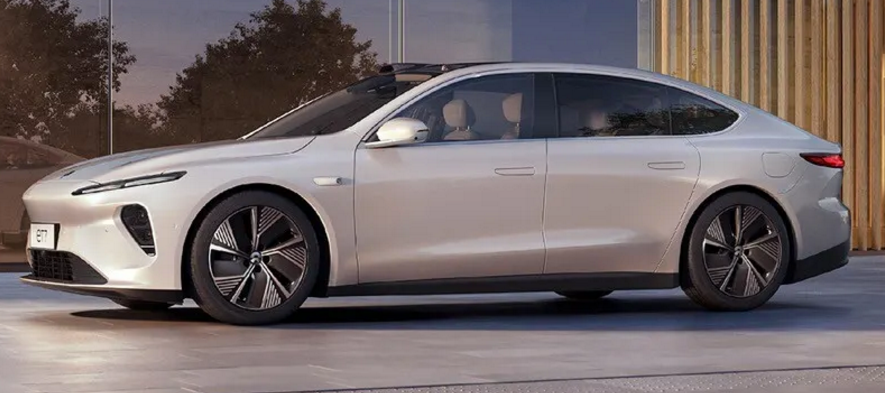NIO launches first sedan model ET7 at NIO Day
Shanghai (ZXZC)- Chinese EV startup NIO launched its first sedan model, the NIO ET7, at the NIO Day held on Jan. 9.

Photo credit: NIO
The newly-launched all-electric sedan, coming with three trim levels, is priced from 448,000 yuan ($69,290) to 506,000 yuan ($78,260) after subsidies. Using the BaaS (Battery-as-a-Service) solution, a consumer can buy an ET7 at a starting price of 378,000 yuan ($58,465).
NIO said the preorder of the ET7 would kick off from then on via the NIO App, and the vehicle is expected for launch in the first quarter 2022.

ET7; photo credit: NIO
With dimensions of 5,098mm long, 1,987mm wide and 1,505mm tall and a wheelbase of 3,060mm, the ET7 plays in the league of full-sized sedans.

ET7; photo credit: NIO
The ET7's relation to the ET Preview is apparent at the first glance. With a minimalist exterior, the closed-off X-Bar grille featuring the slender headlights creates an avant-garde front look.
The car adopts Qualcomm's third-generation automotive digital cockpit platform and carries such connectivity capabilities as 5G, Wi-Fi 6, Bluetooth 5.2 and UWB (ultra-wideband). Moreover, the 7.1.4 immersive system with 23 speakers is also one of the selling points touted by NIO.
On the top of the windscreen, a LiDAR is offered to widen drivers' visual field. Besides, there are up to 11 cameras and radars through the car body, endowing the vehicle with a higher-level driver assist abilities.
Powered by an 180kW front permanent magnet motor and a rear 300kW induction motor, the ET7 is good for a combined output of 480kW and 850 N·m. With a drag coefficient of 0.23Cd, it can sprint from 0-100km/h within 3.9 seconds.
The all-electric car comes with three types of battery packs based on capacity, namely the 70kWh, the 100kWh and the 150kWh, which offer NEV-rated ranges of 500km, 700km and 1000km respectively.
The ET7 is armed with NIO's latest NAD (NIO Autonomous Driving) technology based on NIO Aquila's suite of sensors and NIO Adam's powerful computing capabilities.
The startup has built up the NAD full-stack autonomous driving capability involving perception algorithms, mapping localization, control strategy and underlying system.
At the same time, NIO also launched its 150kWh battery pack and second-generation battery swapping station.

NIO's 150kWh battery pack; photo credit: NIO
The newly-unveiled battery pack employs the solid-state battery technology, boasting an ultra-high energy density of 360Wh/kg thanks to the in-situ solidification hybrid electrolyte, the inorganic pre-lithium Si/C composite anode and the nao-coating nickel-ultrarich cathode. This battery would increase the range of the new ES8 to 850 km, the ES6 to 900 km, the EC6 to 910 km and the ET7 to 1,000 plus km.
The 150kW battery option will be not available until late 2022.

NIO's battery swapping station; photo credit: NIO
NIO's second-generation battery swapping station can accommodate 13 batteries, allowing for up to 312 swap services per day. Additionally, NIO EVs are able to automatically park into the station. NIO said it expects the number of its battery swapping stations in China to total 500 by 2021.

